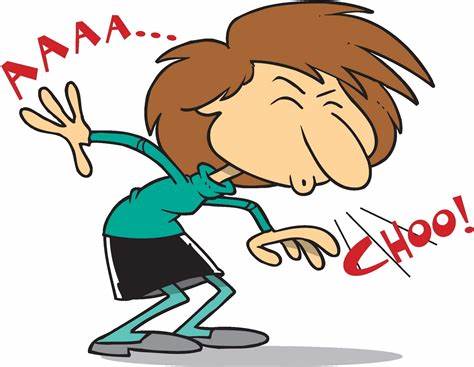Skin Care
Why am I been Sneezing: Causes, Prevention, and Treatment
Sneezing is your body’s way of clearing irritants from the nose or throat. It’s a natural reflex, often harmless, but frequent or long-lasting ones can be a sign of allergies or other health issues that might need attention.

Types of Sneezing
- Occasional Sneezing: This type happens sporadically and is usually triggered by temporary irritants like dust, strong smells, cold air, or even bright light. To stop it, avoid the triggers and maintain basic hygiene.
- Frequent Sneezing: This comes in episodes and is often tied to seasonal allergies (like hay fever), colds, or ongoing irritation. Over-the-counter remedies like antihistamines, saline sprays, or decongestants can help manage it.
- Persistent Sneezing: These last longer and don’t respond to simple fixes. They could be due to chronic allergies, nasal polyps, or environmental irritants. In these cases, seeing a doctor for further evaluation and targeted treatment is important.
Causes of Sneezing
- Common Triggers: Allergens like pollen, dust, pet hair, or mold are frequent culprits. Smoke, perfumes, pollution, or cold and flu viruses can also cause sneezing.
- Underlying Conditions: Long-term issues like allergic reactions, nasal structure problems, or ongoing irritation from non-allergic sources may lead to persistent sneeze.
Prevention Tips
- Minimize Allergen Exposure:
- Keep windows closed during pollen-heavy seasons.
- Use air purifiers and vacuum with high-efficiency filters.
- Wash bedding and clothes regularly.
- Avoid Irritants:
- Stay away from cigarette smoke and strong fragrances.
- Maintain clean indoor air by ventilating and using filters.
- Practice Hygiene:
- Wash hands frequently to avoid spreading germs.
- Cover your nose and mouth when sneezing to protect others.
Treatment Options
At-Home Remedies: Saline sprays help clear out irritants, while staying hydrated and resting can ease cold induced sneeze. Applying warm compresses can soothe irritated nasal passages.
Medications: Antihistamines and decongestants are useful for allergy-related sneeze. For chronic issues, a doctor might suggest nasal sprays for inflammation.
Lifestyle Changes: Keeping your environment allergen-free and avoiding known triggers can make a big difference.
When to Seek
If the sneeze lasts more than two weeks or comes with severe congestion, nasal pain, or other symptoms like fever or difficulty breathing, it’s time to consult a healthcare provider.
CONCLUSION
Sneezing is usually nothing to worry about but knowing its causes and how to manage it can keep you feeling your best. When in doubt, don’t hesitate to seek professional advice.
Monday to Friday :
9am – 8pm
Saturday:
10am – 7pm
Sunday:
10am – 6pm
